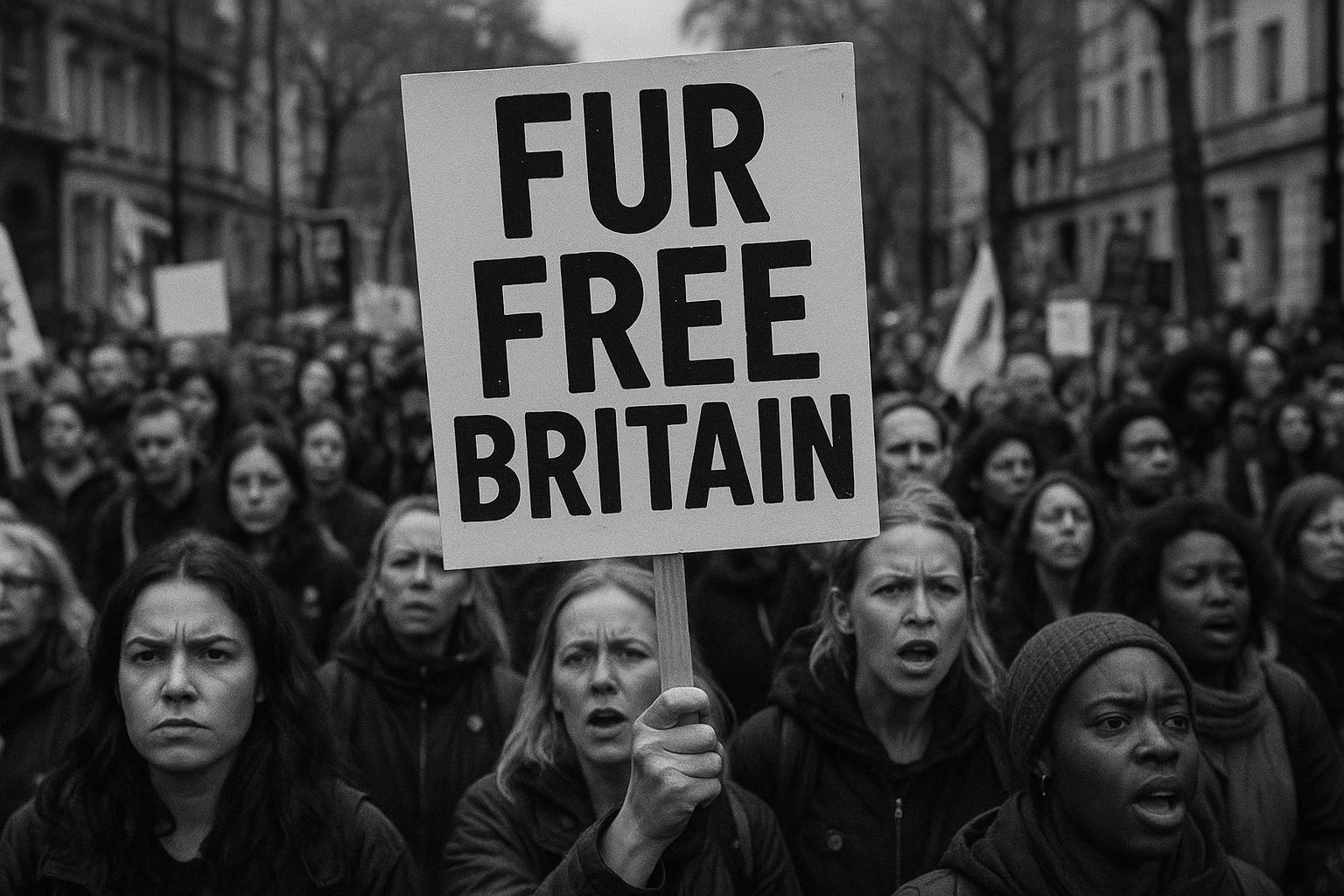Ruth Jones, Labour MP for Newport West, has reignited a contentious debate surrounding animal welfare and fashion by advocating for a comprehensive ban on the import and sale of fur in the UK. While fur farming has faced prohibitions in England and Wales since 2000, numerous types of fur are still legally traded, raising ethical concerns. Jones has introduced a Private Members' Bill aimed at prohibiting these imports, arguing that there is a fundamental contradiction in banning fur farming while still allowing its products to enter the market.
In her remarks, Jones highlighted the inhumane conditions prevalent in fur farming, stating, "If we think it's cruel and inhumane to farm it, why are we importing it? It doesn't make sense." Her stance is bolstered by the growing momentum of the Fur Free Britain campaign, which has amassed over 1.5 million signatures, largely spearheaded by animal welfare organisation Four Paws. Their UK director, Sonul Badiani-Hamment, argued that the suffering of animals in the fur trade is unjustifiable, pointing to the examples of countries like Sweden that are committed to phasing out their fur industries entirely.
However, the British Fur Trade Association (BFTA) has countered Jones's initiatives, labeling her an "avocado police," and suggesting that such a ban would be "unenforceable and unworkable." They assert that it could also potentially violate existing trade agreements with the European Union and the United States. BFTA representatives worry that the prohibition could adversely affect indigenous groups and religious communities that rely on fur, while also endangering economic activity and job security within the sector.
Interestingly, the fashion landscape appears to be evolving, with a noticeable decline in the desirability of new fur products. Jones’s proposition has garnered attention not just because of the ethical considerations but also due to a broader shift in societal attitudes. As noted by Badiani-Hamment, the fashion industry is increasingly distancing itself from fur, with “very few designers left in the country handling fur.” This sentiment is echoed by Mel Kaplan from Vintage Fur Garden, who reported a significant uptick in demand for vintage fur garments, suggesting that consumers may be opting for sustainable alternatives within the vintage market rather than supporting new fur production.
Reinforcing Jones’s position, a cross-party collective of 43 MPs and Peers has also publicly backed her bill, citing emerging evidence of health risks linked to fur farms as a compelling reason for legislative change. This development indicates a broadening political consensus around the welfare implications of the fur trade, positioning the UK as a potential global leader in animal welfare reform.
Former British Fur Trade Association CEO Mike Moser has made a striking personal pivot, now endorsing the #FurFreeBritain campaign after years of championing the fur industry. He highlighted a growing recognition that the production of fur cannot be achieved humanely, aligning his views with the increasing chorus advocating for an end to the fur trade altogether.
With public sentiment evolving and backed by substantial political support, the potential for a fur-free Britain appears more tangible than ever. The implications of this proposed ban reach beyond mere consumer choices, touching on the broader themes of animal rights and sustainability in fashion.
📌 Reference Map:
- Paragraph 1 – [1], [2]
- Paragraph 2 – [1], [4]
- Paragraph 3 – [5], [3]
- Paragraph 4 – [6], [7]
- Paragraph 5 – [2], [4]
Source: Noah Wire Services
